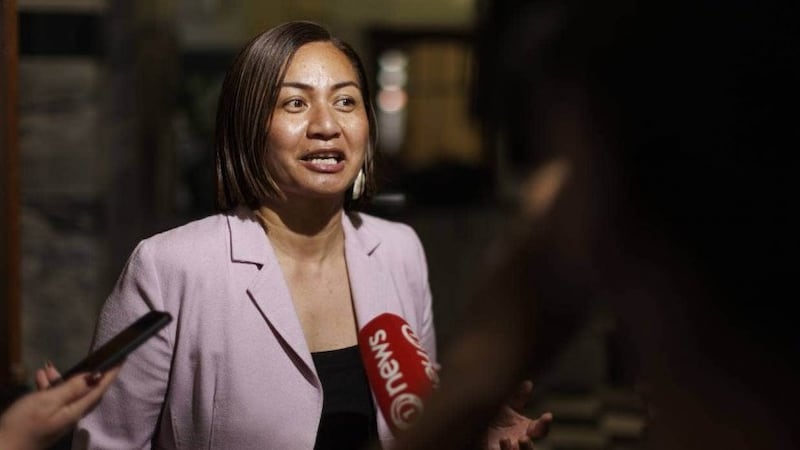Photo: Robert Kitchin / Stuff
By Ripu Bhatia, Stuff
Marama Davidson shouldn’t have to apologise for telling the truth about the prevalence of white male violence, an academic says.
Eileen Joy, a professional teaching fellow and doctoral candidate at the University of Auckland, has come out in support of Davidson, saying that statistics on family violence don’t always paint the full picture. Her PhD thesis looks at child protection in Aotearoa.
Davidson, who is the Minister for Prevention of Family and Sexual Violence, made headlines at a trans rights protest on Saturday.
"I am a violence prevention minister and I know who causes violence in the world, it is white, cis men,” Davidson said.
Davidson later clarified her comment saying she made the comments while being questioned by a far-right media outlet and had just been hit by a motorcycle at a pedestrian crossing.
“I was confronted by a representative from the far-right and conspiracy theory website Counterspin who was filming me walking down the road before accosting me with inflammatory questions,” she said in a statement.
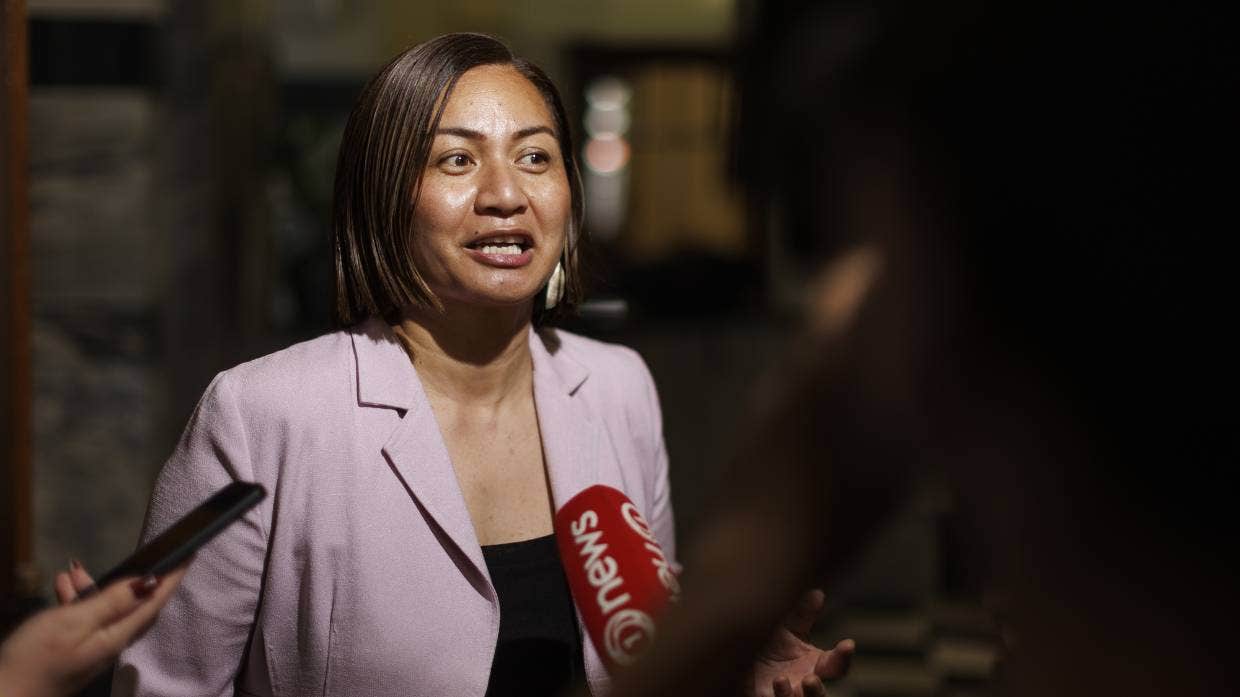
Prime Minister Chris Hipkins was asked about the trans rights protest, which saw tomato juice thrown and Greens co-leader Marama Davidson hit by a motorcycle convoy. Robert Kitchin / Stuff
“I should have made clear in my comments that violence happens in every community. My intention was to affirm that trans people are deserving of support and to keep the focus on the fact that men are the main perpetrators of violence.”
The protest took place in response to British anti-trans activist Kellie-Jay Keen-Minshull’s Let Women Speak event. Keen-Minshull is also known as Posie Parker.
Joy said that looking at the statistics of family violence was challenging because “it depends on how you define the violence itself”.
For instance, someone might not consider a threat of violence as an act of violence in the heat of the moment, but in hindsight that view could change, she said.
“When we’re looking at statistics on violence, of, say, conviction rates, that sort of thing is not counted."
Another often overlooked factor is that Māori and Pasifika tend to face higher conviction rates than Pākehā for the same crime, Joy said.
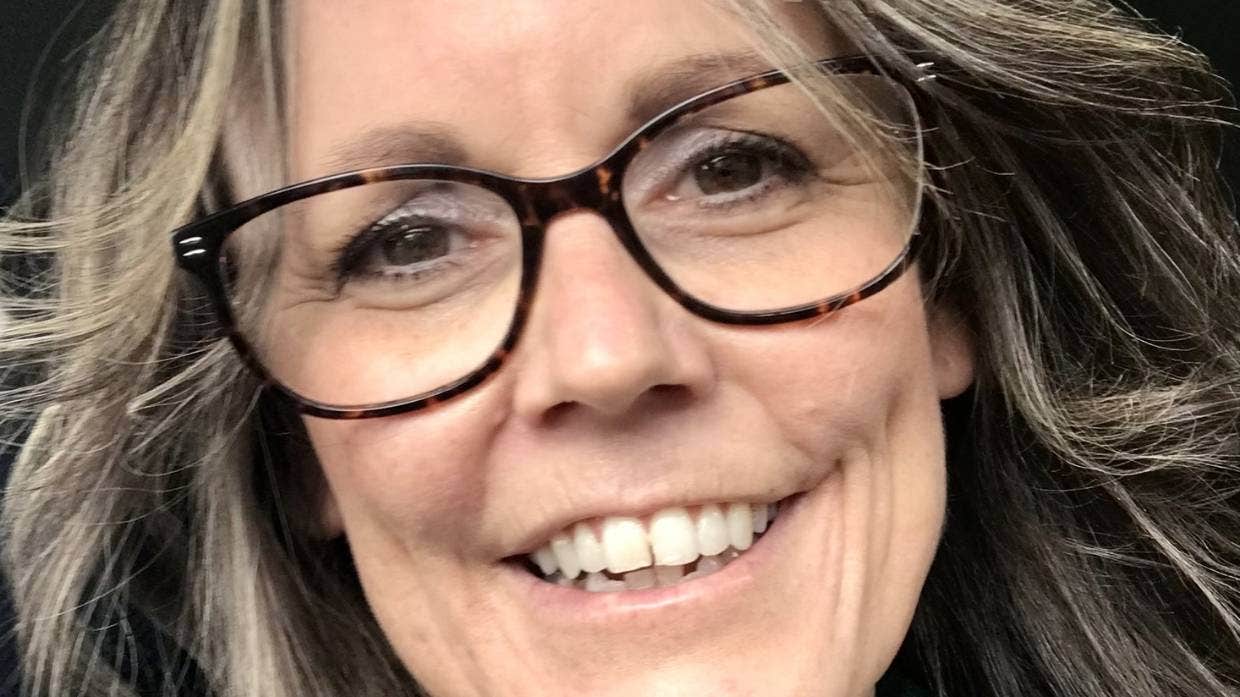
Professional teaching fellow Eileen Joy has come out in support of Marama Davidson’s comments on white cis male violence, saying that statistics don’t always paint the full picture. Photo / Supplied
“We know that it's more likely that everything on paper being relatively equal, the crime being the same, that a Pākehā male will get off a charge or at least have a lesser sentence than a Māori male will have,” she said.
“If we're looking at only conviction rates for family violence, there's a problem with that as well.
"The statistics out there don't tell the whole story because... it's working within a system that favours Pākehā men."
From her work in the field of family violence, Joy knows the vast majority of cases are not reported.
“Some women won't go to refuges because they don't see themselves as people who go to refuges. They might have access to material resources, to money, to houses, to family,” she said.
“That means that they never have to use a refuge, so they never get counted in those sorts of statistics.
“We know that Māori as a population don't earn as much … as opposed to the Pākehā population.
"Pākehā women on average have access to more resources. That means they don't necessarily come to the attention of places like women’s refuge, that doesn't mean that we don't see them, because we do."
Rachel Kain, family violence adviser at the charity Shine NZ, agrees.
“If you're better resourced then you might be able to independently access help as opposed to requiring services,” she said.
“Fifty-four percent of women have experienced family violence in their lifetime in New Zealand, which is too common a statistic to be confined to one community."
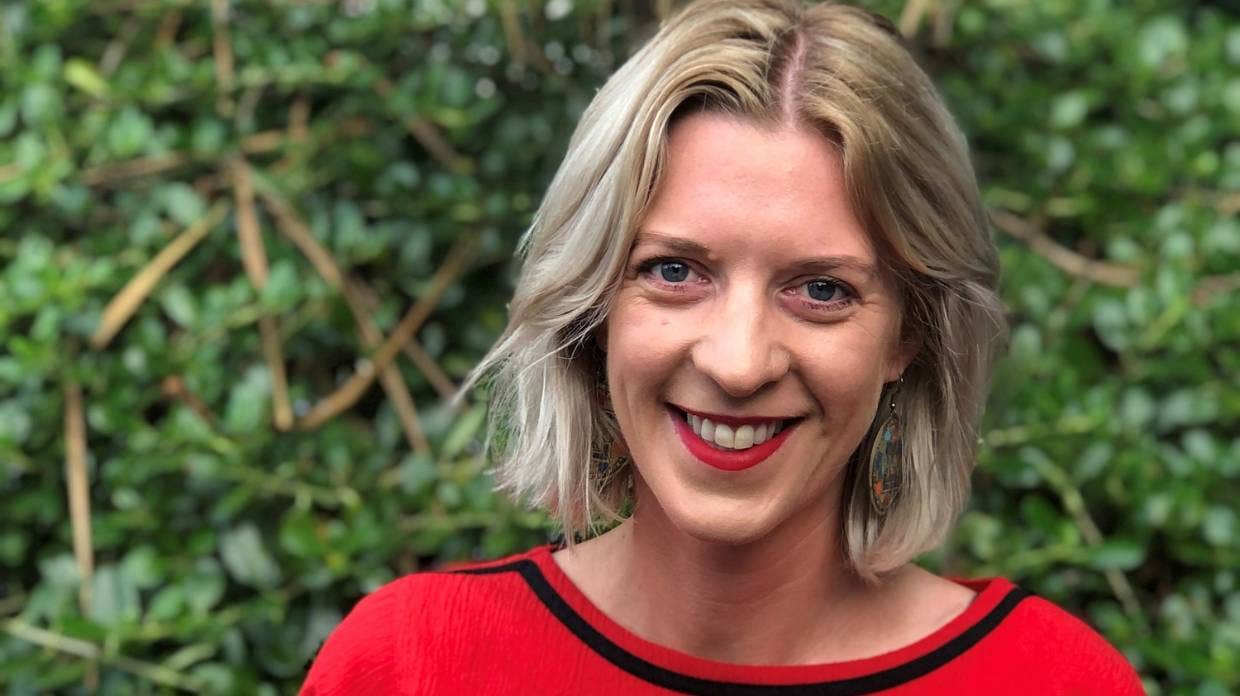
Shine NZ family violence adviser Rachel Kain says family violence is too common to be confined to just one community in Aotearoa. Photo / Supplied
Kain said a big part of family violence is psychological abuse and coercive control, which limits the options for seeking help.
“Your partner knows you best, and they know what's going to be a really effective threat to stop you calling for help, to stop you telling someone,” she said.
“That looks different for everyone. For some people that might be threatening to have their kids taken away, threatening to cancel visa applications, for others it might be threatening to stop paying rent.”
Joy said Pākehā women can have a hard time realising whether what they're experiencing is actually violence.
“The story that we've been told in Aotearoa about family violence is a story that is brown. We’re told about Jake ‘the Muss’, we're told about Once Were Warriors, stories in the media about family violence,” she said.
"So it's easier for Pākeha men to sit back and say 'I'm not like that, I'm not Jake ‘the Muss’, I'm not doing that’."
Dr Phillip Borell (Ngāti Ranginui, Ngāti Tūwharetoa) is a senior lecturer at the University of Canterbury School of Maori and Indigenous Studies.
He said for as long as Europeans have been here, it has been "brown bodies" who have been labelled as violent or deviant.
"Beginning with Abel Tasman in 1642, Māori have been subject to being defined by our physicality,” he said.
"This has led to damaging societal impressions of Māori men, and more recently Polynesian men in general."
Borell said while the statistics surrounding Māori and incarceration rates may be damning, much violent offending, particularly against women and children, goes unreported.
"But, a result of the Māori incarceration rates, and the perceived propensity for violence, Māori and Pasifika men become easy targets when stereotyping perpetrators of violence,” he said.
He said through his research he has seen how hurtful these perceptions can be and the impacts that they can have on individuals, families and communities.
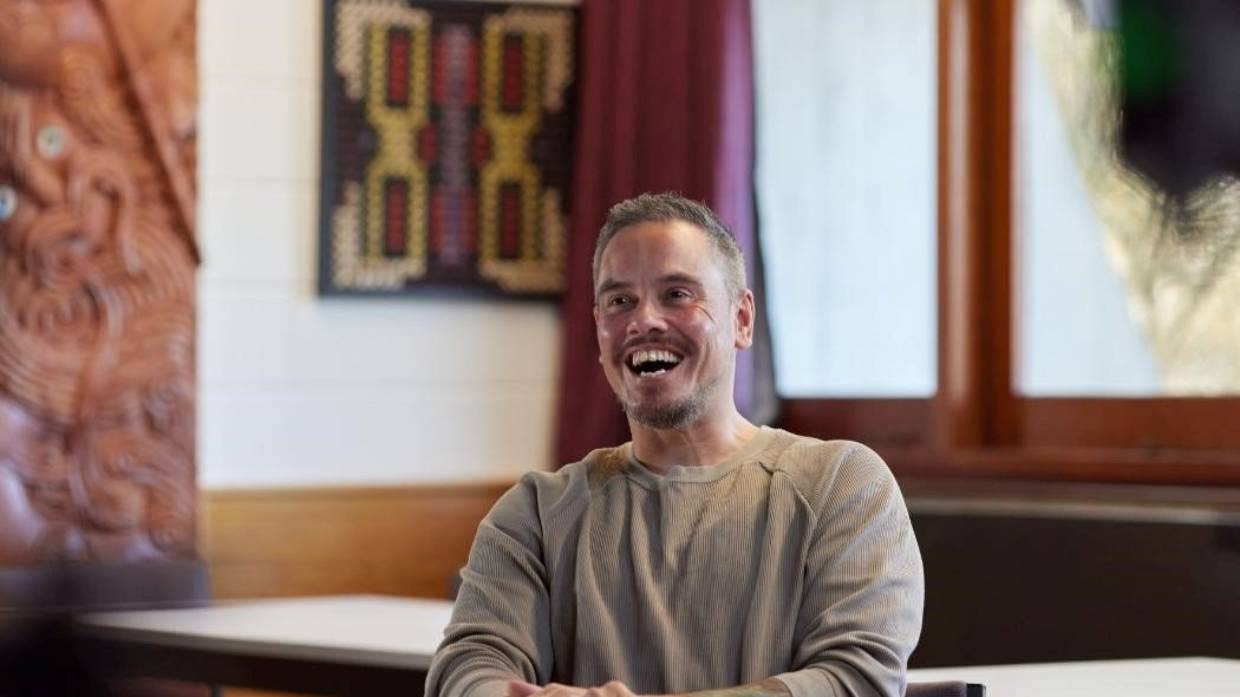
University of Canterbury senior lecturer Dr Phillip Borell says Māori and Pasifika men become easy targets when stereotyping perpetrators of violence. University of Canterbury / Supplied
"Stereotypes of Polynesian men as abusers is detrimental and not without its own need for fact-checking.
"Māori were nurturing fathers, husbands and gardeners at the time of European arrival, not the blood thirsty warrior image that has come to be romanticised in our recent histories,” he said.
"Contemporary Polynesian men, according to my own research, are more likely to exhibit tendencies of nurturing and care as opposed to a propensity for violence.
"The continued perpetuation of Māori and Pasifika men as violent and deviant continues to plague our communities as we are constantly in a cycle of proving who we are not, rather than celebrating who we are."
Borell questioned the quick condemnation of Davidson, as the minister for the prevention of family violence, for her comments.
"Marama’s statement needing to be fact checked rather than accepted as something that could possibly be true... is another form of systemic violence,” he said.
“In that these white males in positions of power need reminding that they, themselves, aren’t the violent ones in our society."
“I wonder if Marama had been a Pākehā man saying the same things, if we would see the same backlash she has faced here.”
Joy said Aotearoa needed to have an open and honest conversation.
“If we're not having open and honest conversations about what it looks like to be a man in Aotearoa then we’re letting men down,” she said.
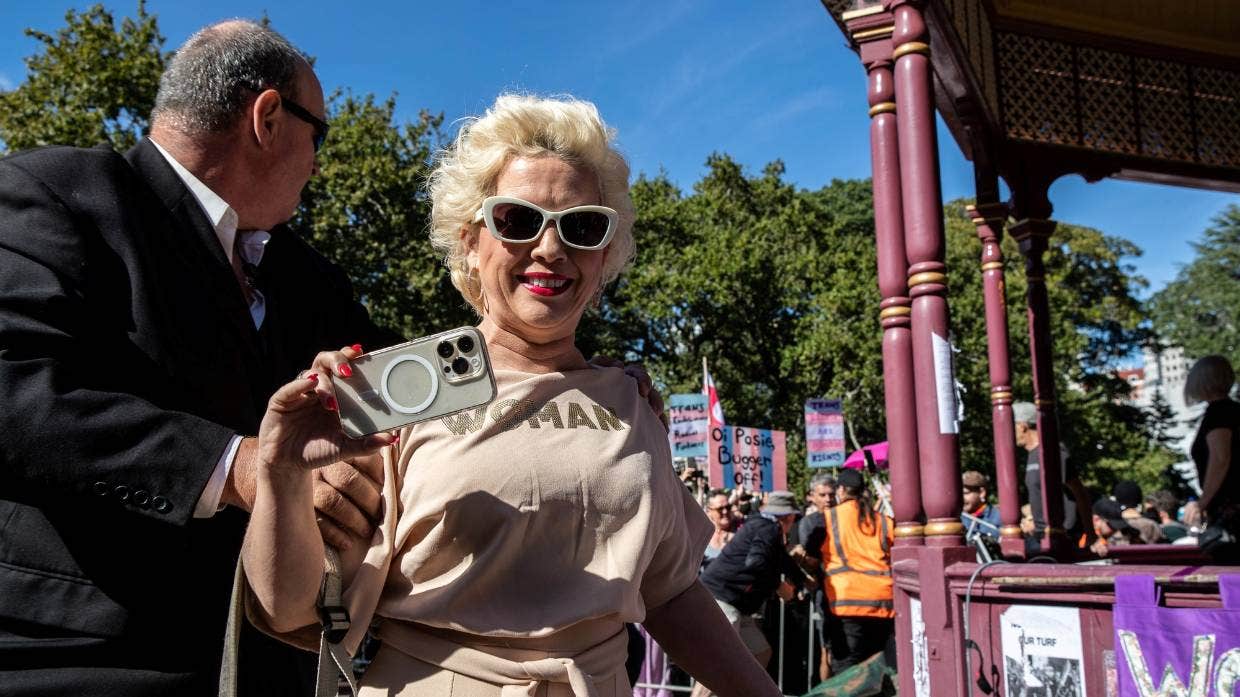
Anti-trans activist Posie Parker and her supporters were met with trans-rights protesters as she tried to conduct a speech at Auckland’s Albert Park last Saturday. Ryan Anderson / Stuff
“We're not being brave and vulnerable enough to talk about these things and to talk about how it affects different men differently.
“We have this story about Once We're Warriors ... I feel that does brown men a disservice.
“That face of family violence being a brown man, we need to actually do better by our men in this country by thinking about how do we confront that, how do we talk about that?
“It's not just brown men and, in fact, as Marama was saying, those of us who have worked in the area know that actually the majority are white men,” Joy said.
"She was speaking at an event where Posie Parker and her supporters were trying to say let women speak. The irony is Marama was speaking, and yet people are trying to make her shut up."

